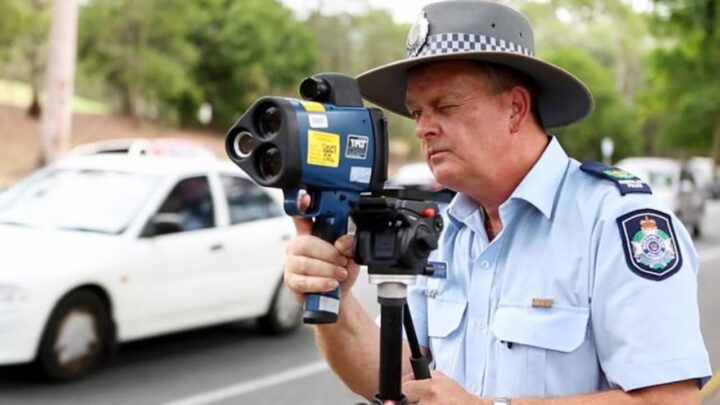Starting October 25, Australian drivers will face one of the biggest crackdowns in recent years, with new high-tech cameras rolling out across the country. These cameras are designed to detect not just speeding but other dangerous behaviours on the road. Offenders caught can be fined up to $3,300 and hit with six demerit points instantly. The move comes as authorities aim to reduce the growing number of road accidents and fatalities. This new camera system will target reckless motorists and ensure safer roads for all Australian residents.

Australia’s New Speeding Camera Fines Explained
The Australian government has introduced stricter speeding penalties under the updated road safety framework. Starting from October 25, anyone caught exceeding the limit will face severe consequences. The new traffic rules empower law enforcement to impose immediate fines of up to $3,300 and record six demerit points on the offender’s licence. Authorities emphasize that these upgraded penalties are not just about revenue but about saving lives. With this reform, Australian drivers are being urged to take road safety more seriously than ever before.
New AI Cameras Target Reckless Drivers Nationwide
The new AI-enabled speed detection cameras will monitor roads across Australia, identifying dangerous driving behaviours in real time. These cameras can detect speeding, mobile phone usage, and even failure to wear seatbelts. Data from these cameras will automatically notify traffic authorities for quick enforcement. This nationwide camera rollout is part of a long-term plan to reduce fatalities and improve discipline among drivers. Every major city—Sydney, Melbourne, and Brisbane—will see installations of these advanced devices before the end of 2025.

Impact on Australian Drivers and Road Safety
For Australian motorists, this new enforcement means greater accountability and safer travel conditions. The new speeding fines aim to deter repeated offences while encouraging respect for road laws. With higher penalties and quicker detection, reckless driving will likely decrease significantly. These changes align with Australia’s broader road safety strategy for 2030, which focuses on lowering crash fatalities by 50%. Authorities hope this initiative will also raise awareness among young and new drivers about the importance of safe driving habits.
| Offence Type | Fine Amount (AUD) | Demerit Points | Detection Method | Effective From |
|---|---|---|---|---|
| Minor Speeding (Under 10 km/h) | $330 | 1 Point | Fixed Camera | 25 October 2025 |
| Moderate Speeding (10–25 km/h) | $880 | 3 Points | Mobile Camera | 25 October 2025 |
| Serious Speeding (Over 25 km/h) | $3,300 | 6 Points | AI Smart Camera | 25 October 2025 |
| Using Mobile While Driving | $1,078 | 4 Points | AI Smart Camera | 25 October 2025 |
| Seatbelt Violation | $550 | 3 Points | AI Smart Camera | 25 October 2025 |
Government’s Road Safety Initiative for 2025
The Australian government has committed to significant technological upgrades to make roads safer. These new AI systems are part of the national Safe Roads Campaign 2025, combining education, enforcement, and technology. The goal is to achieve fewer fatalities, reduce road rage incidents, and build a more responsible driving culture. Australians are encouraged to stay updated with these new road rules and understand how the penalties apply to everyday driving situations. Awareness campaigns will continue across states to ensure compliance and promote a safer driving environment.
FAQ 1: When do the new speeding fines begin?
The new fines and demerit rules take effect on 25 October 2025.
FAQ 2: How much is the highest speeding fine?
The maximum fine for serious speeding is $3,300 along with six demerit points.
FAQ 3: Will these AI cameras operate 24/7?
Yes, the new AI cameras will work continuously across Australian roads.
FAQ 4: Are mobile phone users also targeted?
Yes, the system also detects mobile phone use and seatbelt violations automatically.



